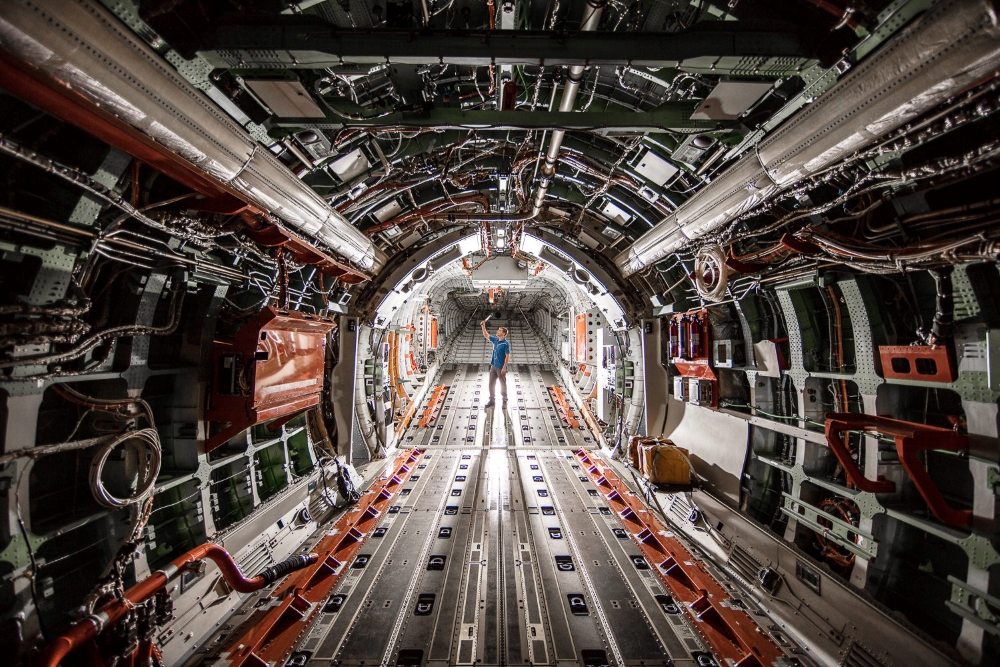
FW Mag had the opportunity to visit Embraer's facilities in São José dos Campos (São Paulo State) and the final assembly line for the KC-390 tactical transport aircraft, located at the Gavião Peixoto plant (São Paulo State, Brazil). In addition, we had the privilege of having a flight from the Embraer facilities in São José dos Campos to Gavião Peixoto and back.
During the visit, Joao Bosco da Costa Junior, President and CEO of Embraer Defence and Security, provided an overview of the company's Defence branch activities and the KC-390 program. Although it started out as a defence firm, Embraer's main business at present is commercial aviation. Of the $21.1 billion backlog, more than half comes from the commercial aviation business ($11.1 billion), plus $4.6 billion from the executive (Jet) segment and $3.1 billion from the service & support business, while the defence business has a backlog of $2.4 billion (data as of Q1 2024). In terms of revenues, the company totalled $5,268.5 million in 2023: 35.1% from commercial aviation, 26.9% from service & support activities, 26.7% from the executive segment, and, finally, 9.8% from the defence segment ($515.5 million). Indeed, Embraer is today a true champion in the aviation industry, with some 20 aircraft certified since 2000.
Decades of experience in the civil/commercial aviation sector, in which it is positioned as a leader in the single-aisle and up to 150-seat segment, with internationally successful products such as the E-2 series (which boasts the industry's most efficient wing), have enabled the company to benefit from the know-how and design and manufacturing capabilities it has accrued to develop cutting-edge solutions in the defence sector as well. Again, thanks to its many years of experience, Embraer, in addition to being a champion in aircraft design and production, is also excellently positioned as an integrator of complex systems.
Virtuous contaminations between the civilian and military sectors are also ensured by the presence of a single centralized engineering department, responsible for both segments. In addition, the use of digital design tools and artificial intelligence, initially developed for the civilian sector, has been successfully extended to the Defense branch as well, enabling a remarkable leap in quality. Also regarding solutions matured from the civilian side, Embraer, which is very active in the area of de-carbonization and implementation of sustainable fuel compatible (SAF) solutions, has already certified the KC-390 to fly with 15% SAF fuel, and the V-2500 turbofan engines (used on the KC-390) already conducted ground testing with 100% SAF, opening the door to interesting developments in the future. It is precisely from such virtuous contamination between civil/commercial and military that the success of the KC-390 MILLENIUM program stems.
KC-390, the point on the programme
Currently, the KC-390 fleet consists of 9 aircraft in service: 6 with the Brazilian Air Force (FAB), with the first delivered in 2019; 2 with the Portuguese Air Force, one delivered in 2023, the first in 'NATO configuration', and the second on June 26, 2024; and 1 with the Hungarian Air Force, delivered on September 5, 2024. As known, Brazil will receive a total of 19 aircraft, while Portugal will receive 5. Other orders have been placed between 2020 and 2023: 2 from the Hungarian Air Force (2020), 5 from the Netherlands (2022), 4 from Austria (2023), 2 from the Czech Republic (2023), and an unspecified number from the Republic of Korea Air Force (2023).
This year, in addition to the delivery to the Portuguese Air Force made in June and the one to Hungary in September, the seventh example to Brazil is scheduled for commissioning. During our visit to the final assembly line at Gavião Peixoto, we had the opportunity to see the last 2 aircraft mentioned above in different stages of construction, with the one destined for the Hungarian Air Force already completed and performing flight tests. Overall, the 7 aircraft in service as of June 2024 (before the delivery of the 2nd to Portugal, 8th in total) had accumulated more than 13,000 flight hours (14,000 for the whole fleet as of September 5), with a fleet availability rate of 80% and operational reliability of 99.2%. As also confirmed by customers, the KC-390 is a true multi-mission aircraft, easily reconfigured for different missions in a matter of hours. The platform can perform a wide range of operations, including aerial refuelling, air assault (paratrooper deployment), special operations, MEDEVAC, air-to-air refuelling, search and rescue (SAR), and firefighting.
Simulators for the KC-390 are developed in partnership with Rheinmetall. A training centre is cur-rently operational in Brazil (São Paulo State), equipped with a Full Flight and Mission Simulator (FFMS) and a loadmaster training station, at which the Air Forces of Brazil, Portugal, and Hungary conduct their training. A second FFMS is being set up in Portugal at the Beja base, while the Netherlands also plans to have an FFMS.
The full article is available in FW MAG 1/2024. To read it for FREE, please register HERE.








